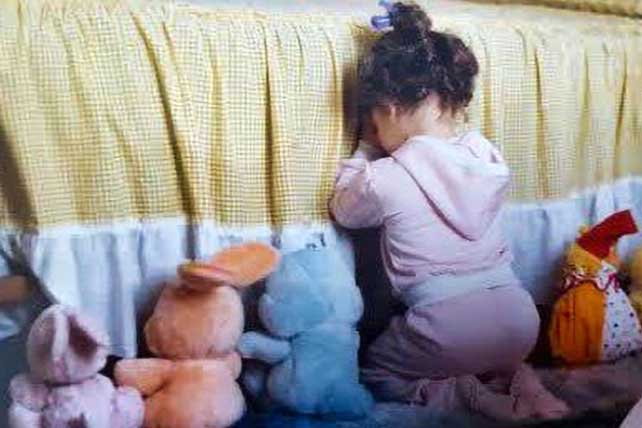“It was everything to do with my parents’ parenting style, because they were unwilling to evolve and do the necessary pivots that our relationship required for them to parent me well,” said Smallcomb of her family’s estrangement.
Lauren Smallcomb holds her book, “Golden Child.” (Photo by Arada Photography)
Twenty-seven percent of Americans are estranged from a relative, according to a 2019 study at Cornell University. Psychotherapist Karl Melvin, who specializes in dealing with family estrangement, challenged the narrative that choosing estrangement is selfish — he told RNS that estrangement is a “long, torturous process” with its own slew of negative consequences.
Estrangement can also take many forms. Some families have limited, rather than no, contact; for others, it’s temporary. Dawn Burns, a writer and professor at Michigan State University, grew up in a Dobson home. Disagreements over parenting approaches and, later, over Burns’ female partner, led to periods of distance and estrangement between Burns and their parents. But over the past few years, Burns has been returning for occasional visits.
“On my end, I go back being fully myself — I don’t hide my marriage to my wife, Bex … or my queerness,” said Burns. “I also don’t place a demand on (my parents) that they accept my narrative and reject theirs — that never works and is fruitless and binary and all the things I fight against these days.”

Dawn Burns as a youth, left, and in adulthood, right. (Courtesy photos)
Parents, too, are deeply impacted by estrangement. Many who raised kids via Dobson’s methods feel surprised or betrayed when their children limit contact; not only were they promised strong families, but because their kids acted compliant for years, they never realized there was a lack of authentic connection.
Today, Focus on the Family, responding to apparent demand, is offering advice for parents estranged from their adult kids. Focus on the Family President Jim Daly has said one of the “top calls” the organization’s counseling team receives is from parents of adult children grappling with estrangement. “We hear often about feelings of resentment, sadness, anger, grief between the parents and their children,” Daly said in a 2021 broadcast series called “Healing Parent and Adult Child Relationships.”
In 2022, Focus on the Family launched a series of articles and videos emphasizing the importance of listening to adult children without judgment, honoring their boundaries and taking the lead on reconciliation. Estrangement, the series argues, is rarely the responsibility of only one party. Focus on the Family contributor and Christian psychologist John Townsend says adult children can be too hesitant to forgive, and that parents often mistakenly extend controlling parenting tactics into a child’s teen years.
“What I would love to hear being taught is that estrangement in and of itself is not the problem, it’s the fruitless outcome of a rotting tree beneath it that attempts to coercively shape children in families to become exactly like their parents in beliefs, values and actions,” said Smallcomb.
“Without fully honoring your child’s authenticity and individuation, adult children will continue to find their own way to embrace their autonomy and agency, and estrangement will be a natural by-product.”
This article originally appeared here.


